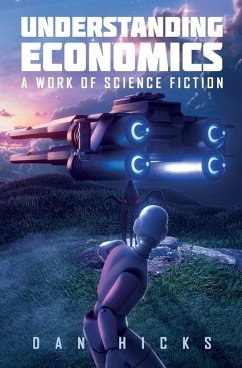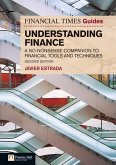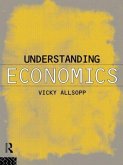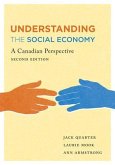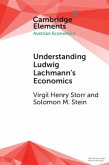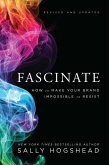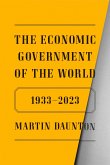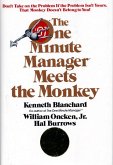"Understanding Economics: A Work of Science Fiction" by Dan Hicks is an accessible and thought-provoking book that makes economics relatable for a broader audience. By merging the worlds of economics and science fiction, Hicks achieves writing a text that is both enlightening and genuinely enjoyable to read." - Leath Al Obaidi, The Society of Professional Economists The human economy might be the most complex thing in the known universe. It is comprised of millions or billions of self-directed human beings, their technologies, and institutions, each continuously acting and interacting within an already ridiculously complex natural world. To navigate this complexity, economists, like science fiction writers, must start with what they know and try and fill in the many gaps in their knowledge with calculated guesses, conjecture, and a little bit of fantasy. In fact, it is when we forget how complex the economy is, when we are confident without justification of the impact our changes will have - that's when we tend to really mess things up. With the help of aliens, androids, Dr. Spock and Darth Vader, Understanding Economics: A work of science fiction takes an in depth look at the factors that make economics so difficult to understand and explain and, aware of these limitations, tries to explain them anyway. THE FIGHT It might not seem apparent as we sit quietly on the bus, do our taxes or wait patiently in line to order our coffee, but the foundation of the human economy is an organism whose ancestors have scavenged, fought, killed and died to enable us to come into existence. This organism, with all its fears and desires, strengths and weaknesses, remains at the centre of economics today. FAITH Without faith we are nothing - but not in a religious sense. Without faith in each other, in our institutions, our governments and our financial system we would literally have only a fraction of the wealth and comforts we enjoy today. We might sometimes fantasize about a post-apocalyptic world with no rules, where we're left to our own resources, but in reality, most of us wouldn't even survive. THE MACHINES Forget about the impending AI apocalypse, the machines rose up and took control a long time ago. Our institutions are a technology of our own making that control our lives and our economy in ways that that we have much less control over than we might like. CHAOS & CONTROL An economy is a precarious balance of chaos and control. When chaos reigns we lose the benefit of people working together to solve their problems. Excessive controls constrain the experimentation and variation through which an economy and its participants come up with new and highly effective solutions to its problems. NO SUPERHEROES There are no superheroes who can save us. There aren't even superheroes who can consistently determine right from wrong. What there is, if we're lucky, is a process that ensures that our system of government is subject to continuous change intended to benefit those who are being governed. THE MATRIX Our economic world exists within a virtual reality of money and finance which facilitates things that couldn't be done without them. But it also distorts reality, making it hard to distinguish between fact and fiction and smart, or not so smart economic decisions. DEFAULT SETTINGS Whatever freedom we may perceive we have to direct our economy, we are constrained by our physical, cultural and political realities as well as the predominant intellectual theories of our time. For good and bad, our economies are defined by these default settings. BETTER REPLICANTS Our understanding of economics is informed by complex theoretical models, but no matter how advanced these models might be, they are a long way from being able to replicate our incredibly complex economic reality.
Hinweis: Dieser Artikel kann nur an eine deutsche Lieferadresse ausgeliefert werden.
Hinweis: Dieser Artikel kann nur an eine deutsche Lieferadresse ausgeliefert werden.

